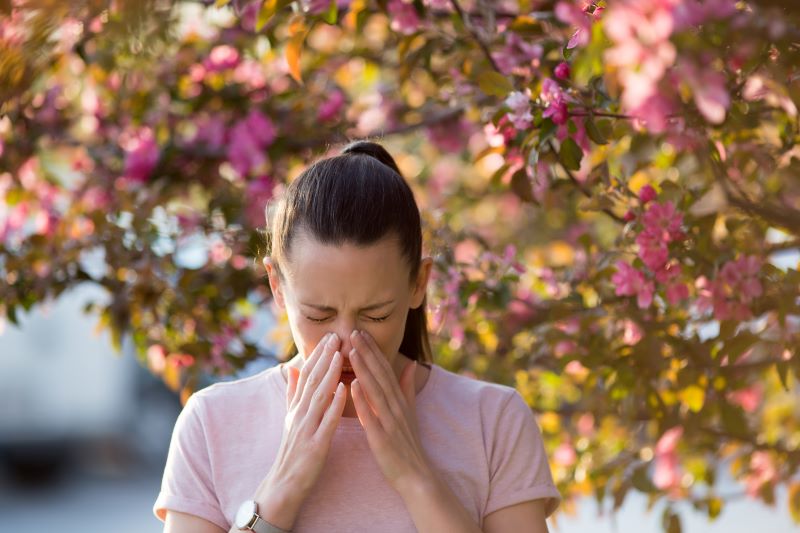Navigating Seasonal Allergies: A Guide to Managing Symptoms
Transitioning into spring in the Midwest is marked by the transition from snowblowers to lawnmowers and the blossoming of flowers and planting of crops. However, for roughly 10 percent of the population, spring also brings back hay fever and the irritating seasonal allergies that come with it.
What exactly causes allergies?
Seasonal allergies mimic symptoms of illnesses without the actual infection. They occur when the immune system reacts to irritants like pollen, resulting in allergic rhinitis, or hay fever.
Stacy Hennigar, ARNP, explains “when your body’s defense system, which is meant to keep you healthy, overreacts to things in the environment such as tree pollen, pet dander, or certain molds and can make you feel lousy.”
When is allergy season at its peak?
It typically begins in February and extends until early summer. In the Midwest, tree pollen dominates early in the year, followed by grass, ragweed, and other weeds.
Stacy notes that “timing and severity can vary across the country, but climate factors such as warm days, high humidity, and wind can increase allergens.” According to Stacy, “pollen levels peak in the morning hours and people can suffer from multiple environmental allergies.”
How do you know if you have seasonal allergies?
A specialist known as allergist can do specific testing to determine allergens. If you have symptoms such as sneezing, a runny or stuffy nose, watery or itchy eyes, pressure behind the ears and face, hearing problems, headaches, and a sore throat due to nasal drainage that tend to occur routinely at the same time every year, it is likely due to environmental allergies, or hay fever.
What are effective ways to manage seasonal allergies?
• Monitor pollen and mold counts.
• Knowing which pollens you are sensitive to can help. During spring and summer tree and grass pollen is highest in the evening. In late summer and early fall, its ragweed pollen, and levels are highest in the morning.
• Avoid touching your face while outdoors to minimize pollen exposure.
• Shower after outdoor activities to remove allergens from your skin.
• Keep windows closed at home and in vehicles to reduce pollen exposure indoors.
What over-the-counter medications are available for managing allergy symptoms?
Over-the-counter oral antihistamines such as Allegra, Zyrtec, or Claritin can help relieve symptoms. Also adding additional treatment with intranasal steroid, or antihistamine spray; such as Flonase, Nasacort, Rhinocort, can provide improved relief of symptoms. Any time you have questions or feel unsatisfied with symptom relief, it’s essential to consult a healthcare provider. Sometimes, underlying conditions can mimic allergies, warranting further evaluation and personalized treatment.
As you navigate through allergy season, consider the benefits of membership with Exemplar Care. Our care team offers personalized attention and effective solutions to alleviate your allergy symptoms. Take control of your health and embrace the spring season with renewed vitality. Breathe easier and schedule your appointment with us today.
If you are interested in more health tips for spring, here are five ways to spring into health.

